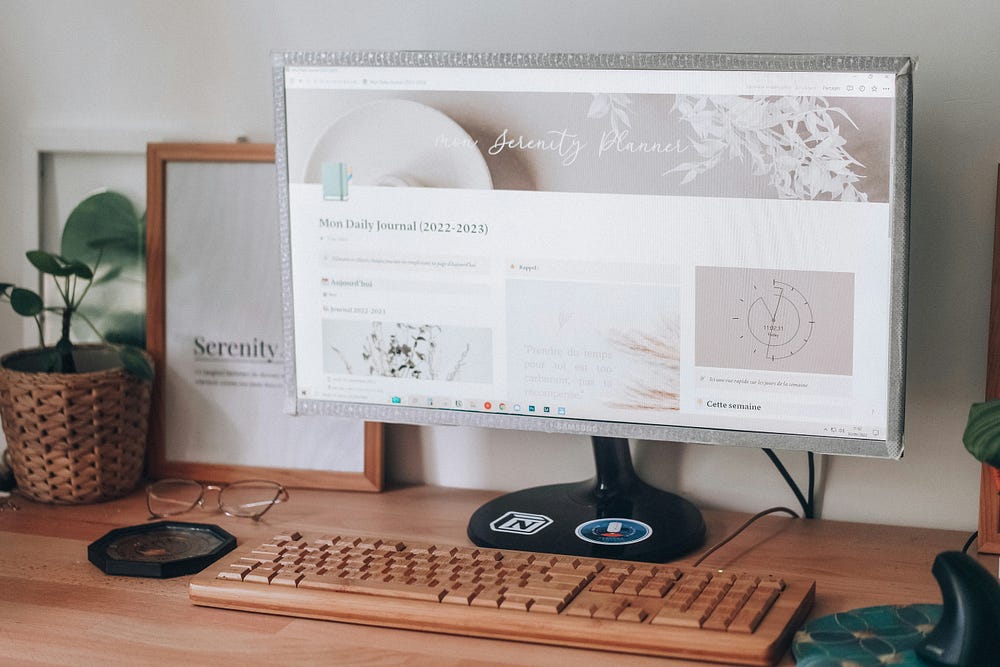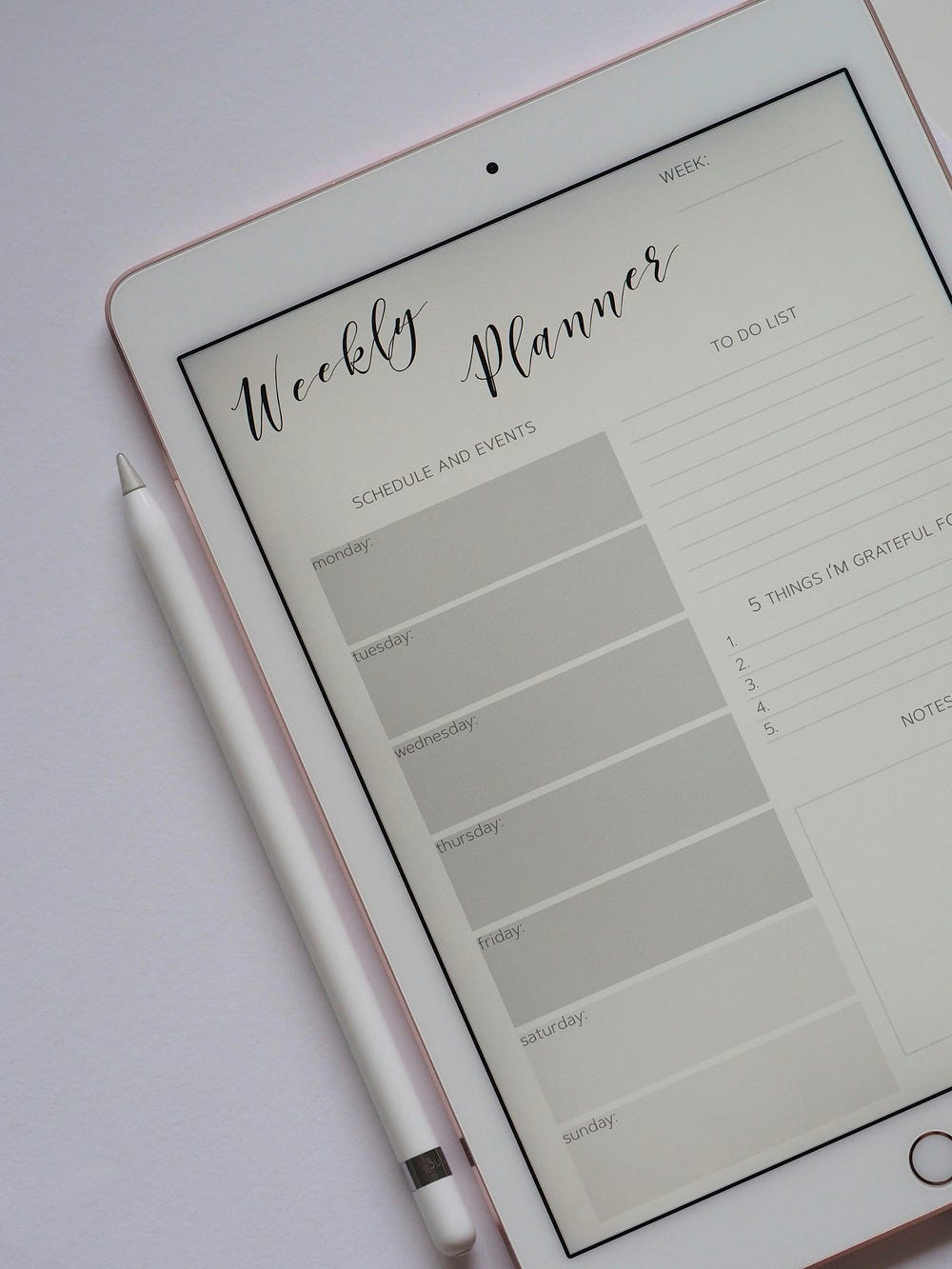Physical journals will never go out of style. But the practice of keeping a diary has evolved with the emergence of digital tools for online journaling. We’re no longer limited to pen and paper. Instead, we now have the option to capture our thoughts and experiences digitally and on the go. Online diaries provide all the benefits of keeping a journal with the convenience and portability of our electronic devices.
Do I still keep a physical journal? Absolutely; in fact, I have two. 😀 But I also document my thoughts, feelings, and daily occurrences in an electronic journal hosted online. I’ll let you know about my platform of choice in a little bit ;).
Shifting from physical to digital self-writing has its benefits, namely the ability to easily search and organize entries, access them from any device, and even attach multimedia elements such as photos and videos. Not to mention, I don’t have to cringe at my awful handwriting, so it’s a win!
I use my online journal to keep an organized record of personal growth, recall fond memories, or just to vent on the go. Depending on the software or website you choose to use, online journaling can be a completely secure and private space to express yourself without worrying that someone will find and read your diary.
Key Takeaways:
- Online journaling combines traditional diarykeeping with modern technology.
- Digital journals allow for easy search, organization, and access from any device.
- Online journaling offers the option to attach multimedia elements like photos and videos.
- It provides a secure and private space to express thoughts and emotions.
- Every moment captured in an online journal is preserved for future reflection and review.
The Best Online Journaling Platforms and Methods

Here’s the thing: there’s no one-size-fits-all solution to this. Long story short, I swear by Notion for my digital journal, and I’ve been using it for years.
In general, online journaling platforms are a modern-day solution to documenting our lives’ journeys. Thankfully, there are many platforms to choose from! Whether you prefer a visual journal, a “second brain” software, or a journaling app on your phone, these platforms provide unique features and functionalities to give a whole new twist to the journaling experience.
So let’s talk about some options:
Visual journals
Any immersive visual platform can be used to create moodboards and visual roadmaps of your life. Pinterest would be a popular option for mapping out your ideal life. It’s the perfect digital scrapbooking website with endless content and an opportunity to build a community tool
Virtual journals offer a visually engaging experience that brings your words to life. The best part is that you can easily create something beautiful and aesthetic~ even if you are not great at drawing or artistic in general.
Journaling apps
This is the solution for anyone who prefers journaling on the go and constantly writes novels in their notes app (I’m also guilty of that :x). You get the emotional outlet you need in convenient and portable packaging. Nice!
There are tons of apps out there to choose from. I’d recommend starting with something simple, such as The Five Minute Journal. You may have heard about their physical journal, but they also have an app and it’s pretty neat. I love the clean interface and it brings all the benefits of their journaling notebook in digital form.
Journaling apps are available on iOS, Android, tablets, and computers, so you can keep a digital diary regardless of the device you own. Not to mention, many journaling apps offer additional features which I find really helpful, such as mood and habit trackers, and prompts to spark your creativity.
Online and offline digital diary software

I love Notion. I’ll never shut up about this thing, even though their Reddit page is always complaining about the lack of offline mode. I use a simple journaling template in the form of a gallery database. Much like a traditional bullet journal, I’ve made a system where certain symbols and actions mean a specific thing. I also keep a list of weekly and monthly prompts for self-reflection that I use at the end of each period.
Best of all, I’ve combined my Notion journal with a simple mood-tracking system that helps me stay in touch with my emotions.
If you really insist on offline mode, however, a good alternative to Notion is Anytype. It has a similar interface and a block-build editor, so for any users of similar platforms, it would be an easy transition.
The main reasons to use a digital diary are:
- It’s relatively safe and less likely that someone will stumble upon and read your journal. Many platforms offer password protection and encryption for an extra layer of privacy and security.
- You can synch your entries across multiple devices.
- Your entires are backed up, you can usually export and store them in different formats.
- It’s much more readable and organized than a physical journal.
- You can easily correct any mistakes you make.
Tips and Techniques for Online Journaling

Let’s get into some of my tips on how you can make the most out of your digital journal:
1. Set intentions
You want to start journaling, but what is your purpose? Before you begin journaling online, take a moment to set your intentions. Decide what you want to achieve through your journaling practice.
For instance, I write digitally because it’s the best way to keep track of my mood, habits, and finances. For you, it could be the need for a safe space for self-reflection, growth tracking, or creative expression. Having a clear intention will help guide your writing and make it more purposeful and meaningful, so you’ll feel more fulfilled.
2. Create a routine
Journaling is actually mostly about routine. Who cares if your notebook looks perfect? You showed up every day, and that is what’s impressive—building and maintaining a long-term, healthy writing habit.
Establishing a consistent routine will help you stay committed to your practice. You can set a time and place that work best for you and make it your own little ritual to write regularly. It doesn’t matter if it’s every morning, before bed, or during your lunch break. What matters is showing up, so find a time that allows you to focus and reflect on yourself.
3. Find inspiration
The cool thing about online journaling is that most platforms offer some sort of template gallery you can choose from. It’s so easy to jump straight into writing when you’ve got a vast array of resources and prompts at your disposal. You can look up writing prompts, quotes, and images that resonate with you and plug them into your journaling software of choice. For example, I created a gallery of pretty images for each month, and I use those as covers for each of my digital journal entries.
4. Organize and Categorize Entries
I LOVE organizing my entires with tags or in categories such as “daily,” “work,” “reflections,” and so on. Keeping your online journal entries organized is essential for easy access and future reference. You can also label your entries based on themes, emotions, or significant events. This way, you can easily navigate and find specific entries when you want to revisit them.
| Tip | Technique |
|---|---|
| Set Intentions | Decide what you want to achieve through journaling online |
| Create a Routine | Establish a consistent time and place for journaling |
| Find Inspiration | Explore writing prompts and images that resonate with you |
| Organize and Categorize Entries | Use tags or categories to label and navigate your entries |
Conclusion
By combining the time-honored tradition of keeping a diary with the convenience and accessibility of modern technology, online journaling offers a unique and compelling approach to documenting our lives.
One of the key advantages of online journaling is its ability to capture moments in real time. With a simple tap of a finger, you can record your thoughts and feelings, preserving them for years to come.
Moreover, online journaling provides us with a digital archive of our memories, which can last for decades to come. Unlike traditional diaries, where entries may get lost or damaged over time, our online journal entries are securely stored in the cloud or on our physical devices.
So, will you start journaling digitally?
Featured image: Photo by Arnel Hasanovic on Unsplash
FAQ
What is online journaling?
Online journaling, also known as digital journaling or journaling online, is the practice of keeping a diary or journal electronically. Instead of writing in a physical notebook, you can write, store, and access your diary entries through various online platforms or journaling apps.
What are the advantages of online journaling?
Online journaling offers several advantages over traditional diary keeping. First, it provides a secure and private space to document personal thoughts and experiences. Second, it enables easy accessibility as journal entries can be accessed from any device with an internet connection. Additionally, online journaling allows for better organization of entries, making it simpler to categorize, search, and review past entries.
Can I transfer my entries from a physical diary to an online journaling platform?
Yes, many online journaling platforms allow users to import entries from physical diaries. You can either manually transcribe your entries into the digital format or use scanning or digitization tools to transfer them more conveniently. This way, you can have all your past entries in one place and continue your journaling journey digitally.

